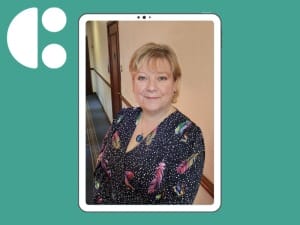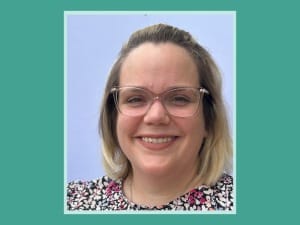It was 2012, I had recently moved from my role as Head of Nursing for Surgery and Surgical Specialties to Head of Nursing for Practice and Professional Development within the same District General Hospital, when I received the news that a girl called Victoria had died in one of the surgical wards.
Victoria died following an emergency laparoscopic appendicectomy, a frequent surgical procedure in acute hospitals, especially with teenagers and young adults. She had bled internally and was found dead in bed at 5.50am, when a Healthcare Assistant went round to do the ‘6 o’clock obs’. An arrest call was put out, the resus team and nurses from other surgical wards came running and tried to revive Victoria, however, it was clear she had died sometime earlier in the night.
Uncovering Errors and Shortcomings
I was asked to be the investigating officer for the Trust. The objective being to discover what went wrong, why it went wrong, and identify recommendations to prevent something like this happening in the future. A key objective for me was to give her family the answers they needed.
After around 6 months, interviewing thirty-seven clinical staff, some several times, my report identified forty-three errors in her care. She had been in the hospital for less than 24hrs. Many of these errors were around communication, including the lack of handovers between professionals at every stage of her journey, to junior staff not asking questions or sharing information. For example, Victoria told the FY1, on his first night shift of his qualified doctor career, that she had a very sore tummy and blood was seeping from her ‘belly button’ wound. The doctor carefully wrote this in the patient’s notes but did not tell anyone else.
Most nursing staff and operating department practitioners, involved in Victoria’s care were 10+ years qualified but found themselves making assumptions, working on the premise that they had cared for multiple patients having had the same surgery who all went home unscathed, rather than follow the policies and procedures of the hospital. For example, only taking one set of vital signs observations, not undertaking post-operative observations as per protocol.
Several of the recommendations included digital solutions, however, disparate solutions, finance, the lack of understanding around the future of technology, meant this was not an easy task. However, as an individual my interest in digital had been sparked.

The Role of Digital Transformation in Healthcare
The experience made me consider the future of healthcare and my future, so when in the summer of 2014, a role came up in industry with a company called The Learning Clinic, who had developed an electronic observation system called VitalPAC. I decided to apply and was successful. My journey as a digital nurse within the industry commenced.
To add some context to that decision, there was no national CCIO or CNIO, there were less than 5 CNIOs at large teaching hospitals that I knew of, and there was no sign that all hospitals would ultimately need clinical digital staff. We were at the genesis of a brand-new clinical speciality so opportunities within the NHS were rare.
However, this role has given me a front row seat to the evolution of this speciality, whilst working with hospitals across the country. My position has also given me insight into how some clinicians moving into the digital speciality can feel. Especially those in District General Hospitals where they may be the one and only full-time digital clinician (most often nurses). Given the relative newness of the speciality and the rapid evolution, many of these people are perhaps Band 6 moving to Band 7 or 7 to 8a. In many instances these roles were and still are secondments or fixed term, leading to anxiety around the permanence of a move into digital roles.
Challenges Faced by Early Digital Clinicians
On my travels I would repeatedly hear about a feeling of isolation, being removed from the professional structure they were used to and moving into teams with very different cultures and colleagues who speak in technical language. Perhaps their line manager is a technical manager rather than a clinical manager as would have been usual. A lack of tools in their toolbox to help them in the new role was also felt quite acutely. I often reminded them that the reason they had the digital role was because of all those clinical tools which were still in their box, but the new language, technical elements, project methodology, all led to a feeling of being adrift and lacking in the requisite skills. This, of course, led to the feeling of being an imposter in this new role, with high expectations, large programmes of transformation and negotiating and influencing a wide range of colleagues across the organisation.
Fortunately, as this speciality has developed, the digital transformation across the NHS has gathered momentum, and as digital maturity improves, there is much more understanding within Trust structures. In most cases we are in a much more positive place now.
However, at the time, witnessing some of the struggles I was seeing I wanted to do something to support and nurture these clinicians to grow and be successful, in the digital space.
The answer was to work with the Florence Nightingale Foundation on the System C sponsored Aspiring Digital Leadership Programme.
This programme gives our digital leaders some practical tools and skills to meet the demands of their roles on a day-to-day basis. It has made a significant impact on all clinicians who have taken part, with some calling it ‘Life changing.’ Many have gone on to achieve promotions, lead fantastic digital transformations and importantly have developed a network of friends and colleagues across the country they can look to for support.
“I think it helped a lot with the imposter syndrome I was feeling and it helped me to realise that as a leader you don’t need to instantly have the perfect answer to every problem, but what you do need is tools that you can use to get to that answer, a wider network to collaborate with, and to create a supportive and compassionate environment that gets the best out of your team.” – Simon Underwood, Clinical Informatics Pharmacist
Next Steps
Find out more about the Aspiring Digital Leadership Programme.
Explore our extensive collection of news and blogs, featuring a diverse array of topics, from inspiring clinician stories to the latest innovations in healthcare.
If you have any questions, please feel free to contact us today. One of our knowledgeable experts will be in touch.






